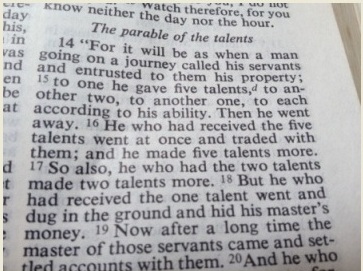Reading to learn
0 Replies
Once you fall behind in literacy, there’s good evidence that the problem can compound itself.
Everyone else speeds up and takes off, and the more they read and write, the more they can read and write, build vocabulary, learn in every subject, and develop their cognitive skills.
Meanwhile, you’re still stuck back on the starting blocks. The more you try and fail, the more negative you feel about reading and writing, and the less inclined you are to keep trying. You thus fall further and further behind in your language skills and your learning more generally.
The Matthew Effect
There’s even a word for this: the Matthew Effect, after the depressing “from he that has not, shall be taken away even that which he has” bit of the Bible. There’s an excellent, recent post about the Matthew Effect on this blog, if you want chapter and verse, so to speak.
However, being a former theological student, I know Matthew 25:29 is the denouement of the Parable of the Talents, which isn’t about life being unfair, it’s about making the most of what you’ve got, and not being lazy or afraid to try. The last bit is only depressing when taken out of context. In fact, it could be taken as an admonishment not to allow learners’ talents and potential to be wasted.
Nowadays, we all need to read and spell to cope with the demands of modern life, and it’s clear from scientific research that only about 5% of the population should have difficulties learning to read, and most of them can still do it with the right teaching. Yet too many people are not learning.
The Amos Effect
I’d thus like to propose a new term, the “Amos Effect” for the rollout of early, evidence-based teaching including synthetic phonics, with extra, well-targeted, expert intervention for anyone who needs it, ensuring that everyone gets the best start at literacy and learning, and nobody falls through the cracks.
In my churchgoing childhood I learnt that a lot of people in the Bible talk about equality and social justice, but I’ve always thought that Amos does it best. Verse 5:24 says: “Let justice roll on like a mighty river, and righteousness like an ever-flowing stream” – not overly dramatic in this context, I think, given the gravity of the consequences of illiteracy, for both the individuals affected and the whole society.



Leave a Reply